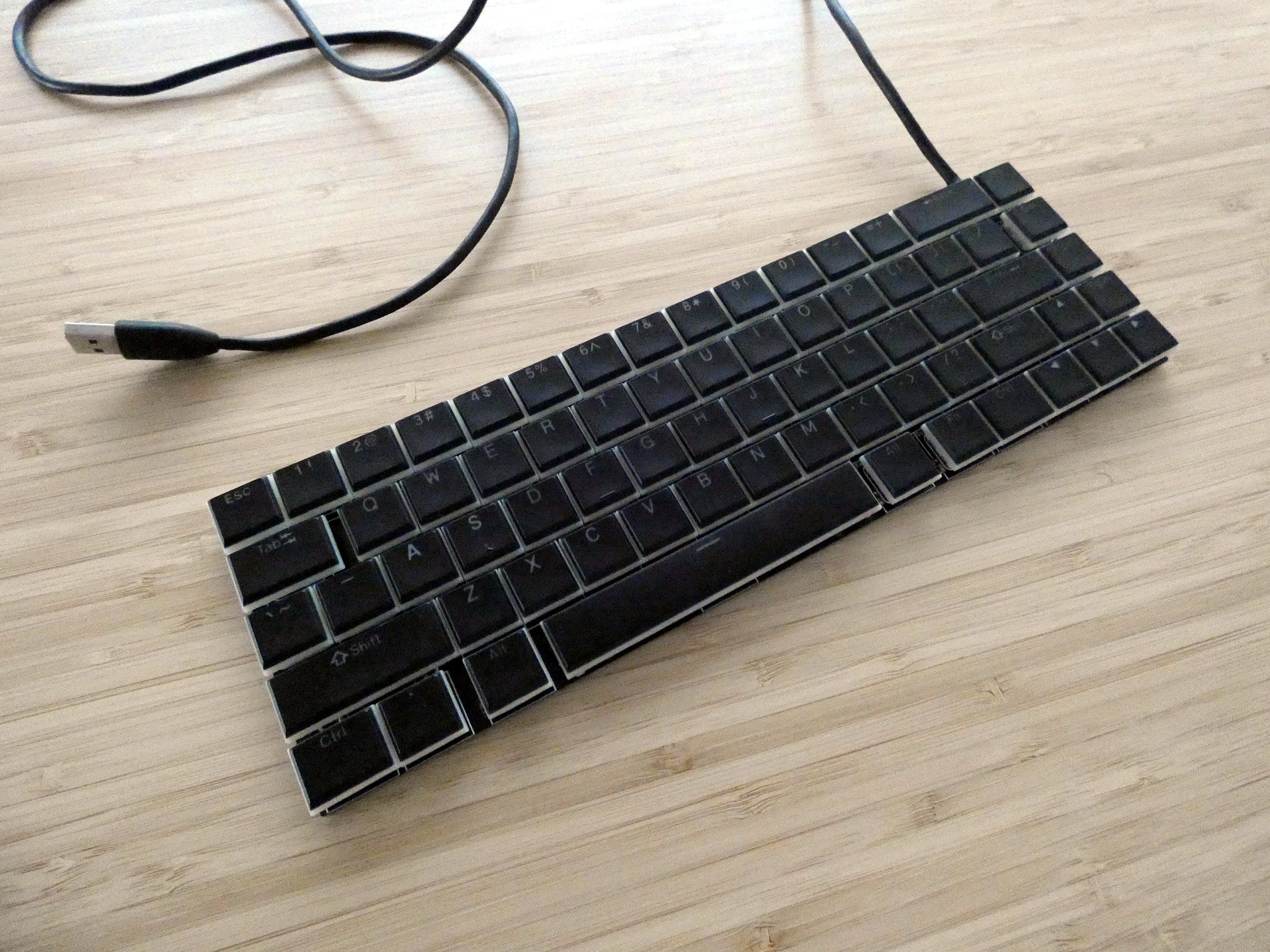The keyboard is now pretty much assembled mechanically, now I "only need to program it" (haha). But I have learned a bit with this, and I can list things that I would have done differently if I was doing it again:
- Standard key spacing. I made the keys denser to make the keyboard smaller, but that introduced a number of problems. The space turned out to be too big. The switches had to be soldered really carefully, to avoid the keys colliding. And also there is something in the muscle memory that expects the standard distances between keys — they keyboard takes a bit to get used to.
- Tighter holes. I left generous tolerances both in the sizes of the soldering holes, and the holes that take the body of the switch — to be safe with varying manufacturing processes and my own inaccuracies. Turns out that makes it hard to solder all the switches straight.
- Plated holes for the stabilizers. I didn't expect I will have to make my own stabilizers out of paperclips, but if I knew that, the holes for mounting the stabilizers would look completely different — the hooks would be soldered into the PCB.
- Pads for USB cable shield. So that I can solder it to the PCB for more robust mechanical connection.
- Maybe use a standard 32u4 chip, so that I don't have to write the firmware myself.
All in all, this might have gone much worse, so I'm quite happy about how it came out.

 deʃhipu
deʃhipu
Discussions
Become a Hackaday.io Member
Create an account to leave a comment. Already have an account? Log In.